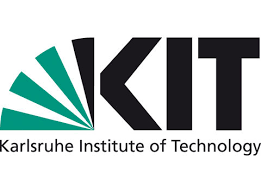Karlsruhe Institute of Technology: KIT team wins university building competition
Aiming high – an interdisciplinary team from the Karlsruhe Institute of Technology (KIT) has won an international university building competition with an energy- and resource-efficient roof extension: The RoofKIT project won the Solar Decathlon Europe 21/22, the world’s largest university decathlon for sustainable building and living in the city. The team, made up of researchers, students and external contributors, set up a full-size demonstration object on the Solar Campus in Wuppertal.
“That was a fantastic performance from RoofKIT. The team has shown very impressively how teaching at KIT goes hand in hand with research and innovation, and above all how committed our students are to taking responsibility for sustainable development. We are very proud of this great team,” says Professor Alexander Wanner, Vice President of KIT for Teaching and Academic Affairs. “I would like to congratulate the student team, professors Dirk E. Hebel and Andreas Wagner, the project partners and everyone else involved.” It is the first time since 2009 that a German team has won this competition. For Professor Dirk E. Hebe and Professor Andreas Wagner from the Faculty of Architecture of the KIT, who are accompanying the project, the competition victory confirms their way, to establish the KIT on an international level as an important place for sustainable construction. “We couldn’t be prouder of this incredible team and of a generation of students who are aware of their responsibility for the future.”
Building in harmony with natural and technical cycles
How can architecture live up to its responsibility towards society in times of climate change, scarcity of resources and increasing demand for living space? The interdisciplinary team RoofKIT from KIT investigated this question and came to the answer that designs and buildings must be in harmony with natural and technical cycles. In order to show what energy- and resource-efficient, circular and socially connecting building can look like, the team of researchers and students from KIT and external experts designed an extension for a building from the 19th century, the Café ADA in the old town of Wuppertal, and erected a part of the building in its original size as a demonstration object.
Architecture and innovation disciplines decisive for the victory
On the last day of the competition, the disciplines of architecture and innovation were decisive in the fact that RoofKIT was ceremoniously chosen as the winner at the final ceremony of the Solar Decathlon Europe 21/22 on June 24th. Team VIRTUe from Eindhoven came in second; the teams AuRA from Grenoble and SUM from Delft tied for third place. A total of 16 teams from eleven countries came together to plan, build and operate solar houses with a neutral or even positive energy balance for the university construction competition, which was held in Wuppertal for the first time in Germany and was funded by the Federal Ministry for Economic Affairs and Climate Protection.
New housing in the city
“Away from linear temporary solutions towards an endlessly circular approach to beauty, longevity and circularity” – this is how Professor Heben describes the concept on which the project is based. “The addition and renovation of existing buildings offers the opportunity to create new living space in cities and at the same time to use solar energy intensively,” explains Nadine Georgi, student of architecture at KIT and member of RoofKIT.
Solar systems on the building envelope
The roof extension designed by the Karlsruhe team consists of wooden residential units arranged around an atrium; Storage space and technical infrastructure are housed centrally. RoofKIT uses prefabricated wooden modules, which ensures precise construction. Only mono materials are used for the project, i.e. no material mixtures. This supports the vision of cities as material stores from which people first use, instead of using new raw materials. Paints, impregnations, adhesives, foams and wet seals are not used in order to ensure that the building and its materials are 100 percent recyclable. Solar systems on the building envelope cover all energy needs, including electrical appliances and electromobility.
Since 2020, more than 100 KIT students have been working on the project in various faculties under the direction of the Chair for Sustainable Construction of Professor Dirk E. Hebe and the Chair of Building Technology of Professor Andreas Wagner. In May and June 2022, RoofKIT set up the demonstration object on the Solar Campus in Wuppertal, which was open to the public during SDE 21/22. RoofKIT plans to bring the constructed building to Karlsruhe in order to show here how future-oriented building and living in the city can already be realized today according to the criteria of ecology, economy, social issues and aesthetics.

